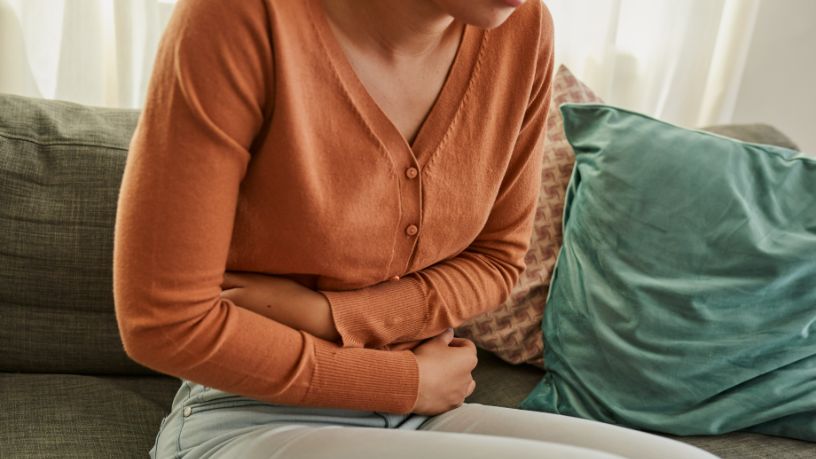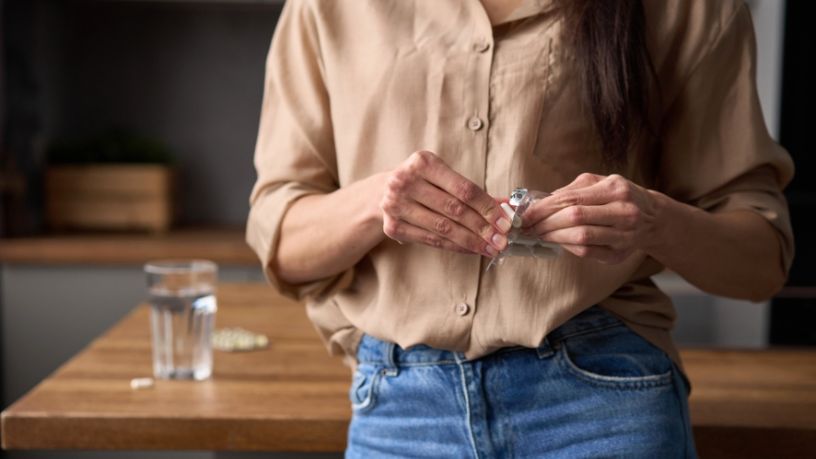Recovering from gastro needs to be done right to avoid serious health complications.
On this page
Key takeaways
Here are 5 important pieces of advice for dealing with the infection, including how long you need to stay home and when you may need to see a doctor.
You can avoid gastro altogether by taking certain precautions. Find out what they are.
With frequent dashes to the bathroom and long periods stuck at home, having gastro is not ideal. But it’s important to manage the illness properly to minimise your symptoms and avoid any serious outcomes.
Here, we look at 5 things you should always do when you contract gastro, plus how to avoid getting it in the first place.
What is gastro?
Gastroenteritis (‘gastro’) is a common but potentially serious infection that affects the digestive system. It’s highly contagious and can lead to a variety of unpleasant symptoms, including vomiting, diarrhoea, nausea and stomach pain.1
The infection typically occurs after coming into contact with a food, drink, person or object that’s contaminated with it.
While anyone can become ill with gastro, more vulnerable groups include the elderly, young children, pregnant people and those with weakened immune systems.2
What to do when you have gastro
If not properly managed, gastro might lead to serious health problems for you or other people.
It usually isn’t necessary to see a doctor when you have gastro, but it is important to follow proper health and safety procedures when dealing with it. Make sure you:
1. Stay home
To prevent the spread of gastro and ensure a speedy recovery, it’s recommended that you stay at home until at least 48 hours after your symptoms have ended.3
This means quarantining from work, school and any other public place while you’re vomiting or experiencing diarrhoea (or any other gastro symptom), plus 2 additional days after it stops.
2. Wash your hands regularly and thoroughly
While staying home is the best way to contain gastro from the outside world, it may still be important to prevent it from spreading within your household.
Using water and soap, rub your hands together for at least 20 seconds before rinsing them. It’s better to dry your hands with disposable paper towels as opposed to a reusable towel.
3. Prevent contamination on surfaces
To stop gastro from spreading, it’s also important to regularly sanitise any surface that you or another infected person comes into contact with.
This means regularly cleaning clothes, bedding, toys, soft furnishings and shared surfaces like bathroom sinks and the kitchen bench.
You should also immediately disinfect surfaces that have been exposed to vomit or diarrhoea.
4. Drink plenty of fluids
When you have gastro, you may experience vomiting for one or 2 days and diarrhoea for up to 3 days (or longer in severe cases). This makes you vulnerable to dehydration.3
During your recovery, try to sip clear fluids like water every 5 to 10 minutes. You should avoid sugary drinks, though, as they can make your diarrhoea worse.
You should also eat when you’re hungry, starting with simple foods like rice, broth or dry toast.
5. Know when you do need to see a doctor
While gastro usually resolves itself on its own, certain cases may require medical attention. Visit or telehealth your GP if you have:
- blood or mucus in your stool
- a fever
- severe stomach pain that gets worse
- symptoms that are worrying (like prolonged or frequent vomiting or diarrhoea)
- symptoms of dehydration (such as passing limited, smelly or dark urine).
As well as the above, children with gastro should also visit a GP if they:
- are under 6 months of age
- weigh less than 8kg
- have vomit that’s dark green
- have another health condition
- were born prematurely
- can’t keep food or fluids down
- aren’t getting better.3
Avoiding gastro in the first place
Of course, the best way to deal with gastro is to avoid getting it altogether. There are a variety of measures you can take to do this, including:
- following food safety practices. This includes washing your hands before cooking and eating, storing raw foods in their own areas and making sure that certain foods are cooked to at least 75°C
- being careful when you’re caring for someone else with gastro. This might mean wearing gloves and a mask and regularly disinfecting shared surfaces
- preparing yourself when travelling overseas. As travel to many countries carries the risk of gastro, it pays to be prepared. This may include packing water purification tablets and avoiding suspicious-looking food.
If you’re in doubt about your gastro, contact your GP. They can assess your condition and may request a blood or stool sample to determine its cause.

At Bupa, trust is everything
Our health and wellbeing information is regularly reviewed and maintained by a team of healthcare experts, to ensure its relevancy and accuracy. Everyone's health journey is unique and health outcomes vary from person to person.
This content is not a replacement for personalised and specific medical, healthcare, or other professional advice. If you have concerns about your health, see your doctor or other health professional.
1Better Health Channel. (2021). Gastroenteritis. Victoria State Government, Department of Health.
2Ho, V. (2018). Health Check: how long are you contagious with gastro?. The Conversation.
3Healthdirect. (2023). Gastroenteritis. Healthdirect.
You might also like...
Gastro: The basics
You may have had gastro at some point in your life, but do you know what it is? Get to know the basics.
Irritable bowel syndrome (IBS): The basics
IBS is a gut disorder that can include symptoms like diarrhoea, bloating and abdominal pain. Find out about the symptoms and how you can get diagnosed.
Sick of being sick? Boost your gut health
If you often get sick, your gut might be telling you that something’s wrong. Learn more about boosting your gut health.
Do probiotic supplements help gut health?
Probiotic supplements claim to improve your gut health, but do they actually work? Find out if you should be taking them.





